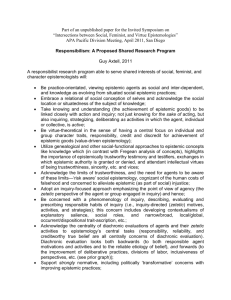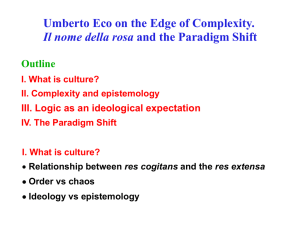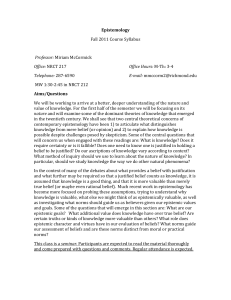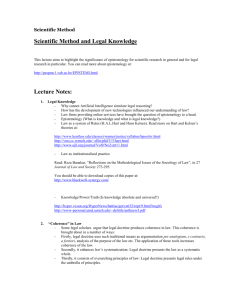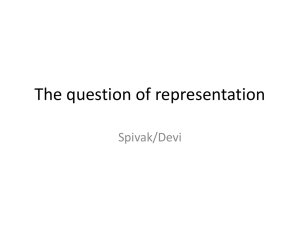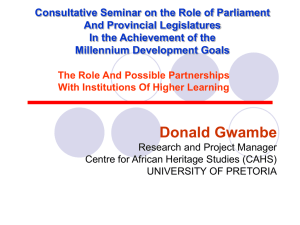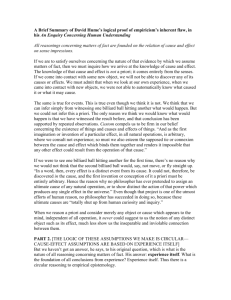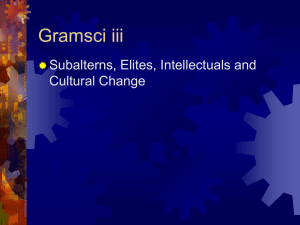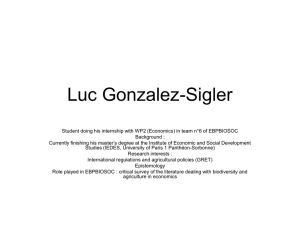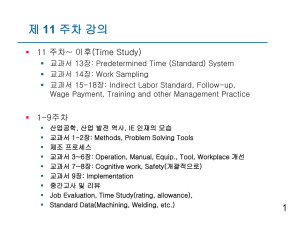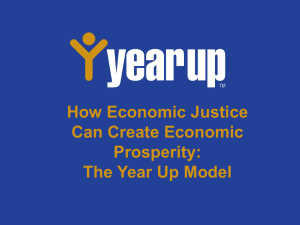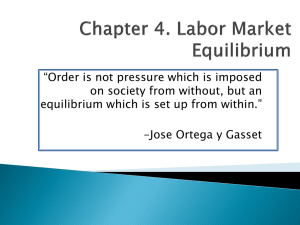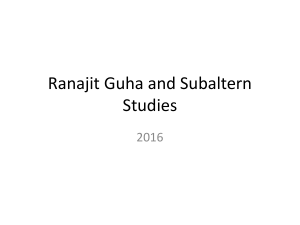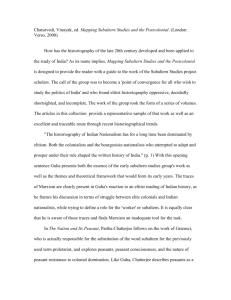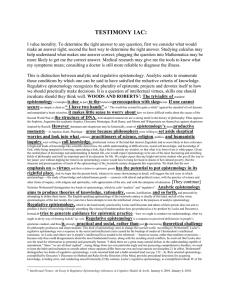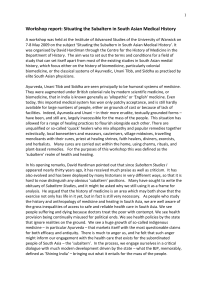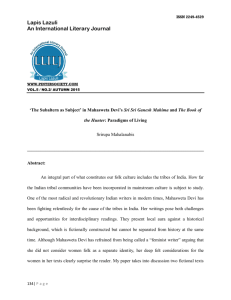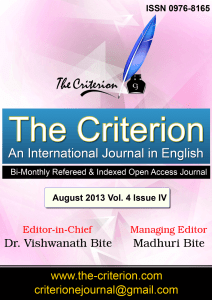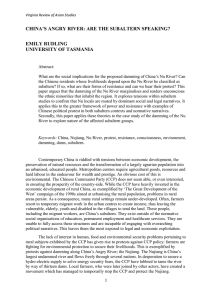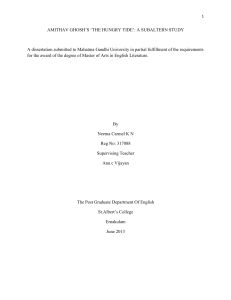I affirm. First is framework. Epistemology is important. 3 reasons
advertisement
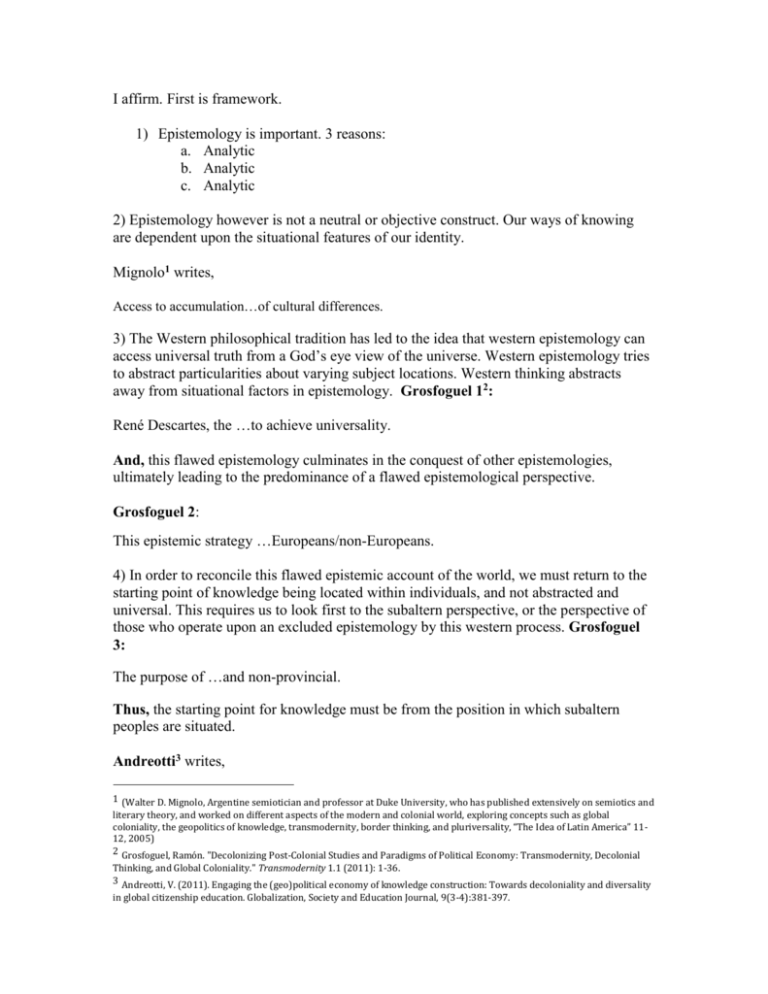
I affirm. First is framework. 1) Epistemology is important. 3 reasons: a. Analytic b. Analytic c. Analytic 2) Epistemology however is not a neutral or objective construct. Our ways of knowing are dependent upon the situational features of our identity. Mignolo1 writes, Access to accumulation…of cultural differences. 3) The Western philosophical tradition has led to the idea that western epistemology can access universal truth from a God’s eye view of the universe. Western epistemology tries to abstract particularities about varying subject locations. Western thinking abstracts away from situational factors in epistemology. Grosfoguel 12: René Descartes, the …to achieve universality. And, this flawed epistemology culminates in the conquest of other epistemologies, ultimately leading to the predominance of a flawed epistemological perspective. Grosfoguel 2: This epistemic strategy …Europeans/non-Europeans. 4) In order to reconcile this flawed epistemic account of the world, we must return to the starting point of knowledge being located within individuals, and not abstracted and universal. This requires us to look first to the subaltern perspective, or the perspective of those who operate upon an excluded epistemology by this western process. Grosfoguel 3: The purpose of …and non-provincial. Thus, the starting point for knowledge must be from the position in which subaltern peoples are situated. Andreotti3 writes, 1 (Walter D. Mignolo, Argentine semiotician and professor at Duke University, who has published extensively on semiotics and literary theory, and worked on different aspects of the modern and colonial world, exploring concepts such as global coloniality, the geopolitics of knowledge, transmodernity, border thinking, and pluriversality, “The Idea of Latin America” 1112, 2005) 2 Grosfoguel, Ramón. "Decolonizing Post-Colonial Studies and Paradigms of Political Economy: Transmodernity, Decolonial Thinking, and Global Coloniality." Transmodernity 1.1 (2011): 1-36. 3 Andreotti, V. (2011). Engaging the (geo)political economy of knowledge construction: Towards decoloniality and diversality in global citizenship education. Globalization, Society and Education Journal, 9(3-4):381-397. In relation to …where I think’ (89). Therefore, the standard is consistency with the subaltern epistemic perspective. Thus, I contend that a living wage is more consistent with the view point of the subaltern First, Subaltern perspective dictates reform in the conception of the law which views human rights Burnett- Stuart TransnationalAdvocacyNetworksasCounterHegemonicActors:TheAsiaFloorWageAllianceandtheLivingWagePeople’s Tribunalhttp://www.academia.edu/7276015/The_Asia_Floor_Wage_Alliance_and_the_Living_Wage_Peoples_Tribunals Matthew On October 7, …civil society actors. A living wage is most consistent with this view point. A minimum wage is the result of bargaining between unequal political negotiations, instead of as a result of meeting the minimum of standard of living being a primary right. Burnett- Stuart 2 The idea of …the living wage. Second, It is empirically verified that organizations such as transnational advocacy networks aimed at protecting the rights of the indigenous and marginalized seek to implement a living wage based on subaltern use of the law. Burnett- Stuart 3 We have seen …countries it represents.

